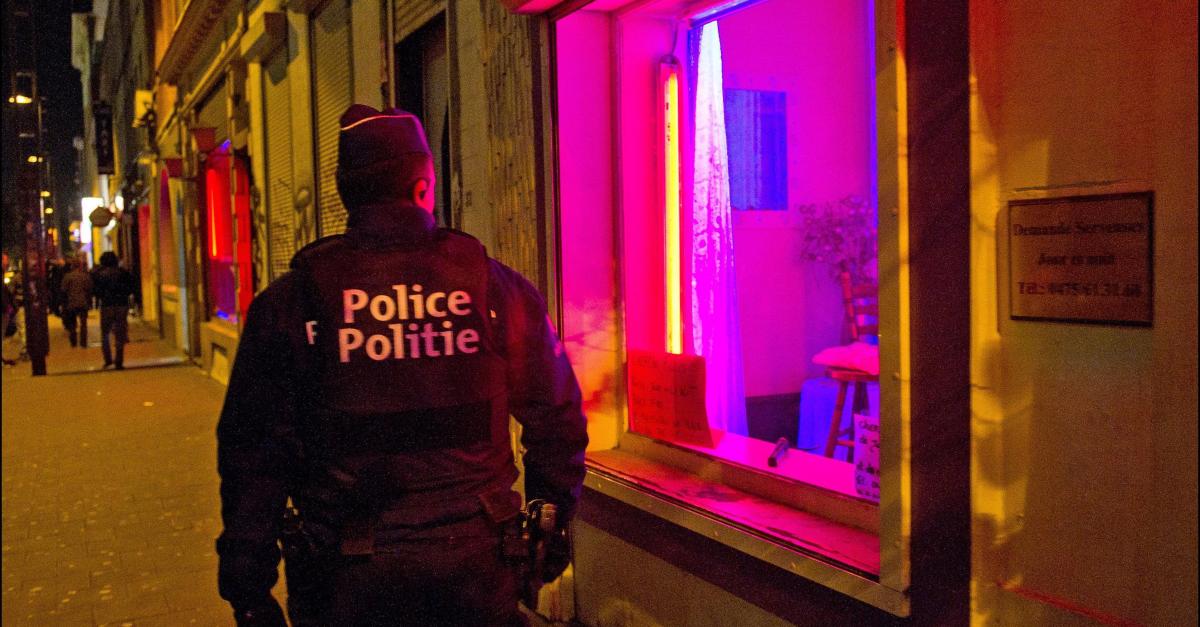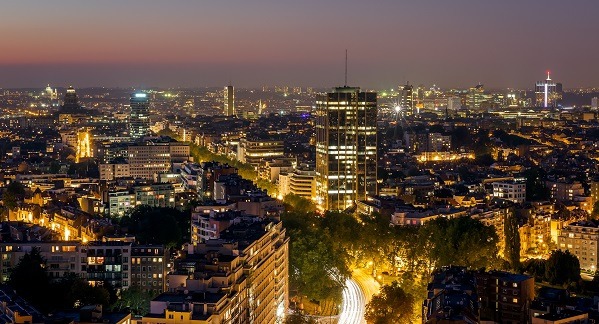“The situation is as deplorable as in the Middle Ages: pure slavery and exploitation.” Those were the words an expert from the federal police used in an interview with De Standaard in mid-January to describe the fate of a rapidly growing group of Nigerian girls who are brought to Belgium and forced into prostitution. The networks in which they are trapped operate all over the country, but in particular in Saint-Josse-ten-Noode, where the situation is nothing short of disastrous. Due to the fact that there are so many of them, the prices for their sexual services drop as low as five euro. At the heart of Europe, in Brussels, girls, some as young as fourteen, are exploited as sexual slaves. And we don’t seem to care.
Where’s the outrage?
The massive #metoo-campaign raised awareness about the abuses of sexual intimidation, exploitation and manipulation, in so far as these affect the careerist middle classes, who had been brought up to expect a better deal. We have become immensely sensitive to the wrongs of slavery in the past and continue to debate what to do with monuments of national heroes who were slaveholders or racists. We have all given the impression of caring deeply about the countless girls who were kidnapped in Nigeria by Boko Harem: “bring back our girls”. But strangely enough we don’t seem to be sensitive to the misfortunes of those poor girls and young women in our own country. We don’t seem upset about the slavery that happens in our midst right now, or the systematic intimidation, manipulation and exploitation of its victims. How can we explain this? Maybe we have to admit we are moral hypocrites. Is that not also what the same expert from the police implied, when he said that – had it not been black girls and young women – there would be a continuous stream of public outrage.
Comatose public opinion
In order to be able to solve a problem, one must first recognize that it is a problem. But all too often, we think slavery is something that happens in faraway countries or times long past. As a result, we fail to notice the tragedies that happen right now among us. There are only three organizations in Belgium – PAG-ASA, Payoke and Myria – that put the battle against trafficking and enslavement at the heart of their mission. This battle consists of two components. One is to offer practical, legal, social and psychological support to the victims. The other is to raise awareness of the problem in order to awaken public opinion from its comatose state: yes, there is a problem, and no, shrugging your shoulders is not the proper response.

Local police recently uncovered a large Nigerian prostitution network in Brussels. Young girls from Nigeria were brought to Brussels and promised a better future. However, as soon as they would arrive in Brussels, they were forced into prostitution. The girls were working in some 30 brothels in Brussels’ red light district in the Saint Josse commune.
Sexual and economic exploitation
The problem is not restricted to prostitution. It also concerns the many people who are brought here, having been promised a better future, and who then are forced to work in the catering, construction or transport sector without being properly paid for it. Reports about modern slavery in Belgium show we still don’t have a grip on the phenomenon: systematic analysis and data are lacking. How many slaves are there in Belgium? Where do they come from? Who brought them here? What do they do? We don’t really know. What we do know is that each year at least several hundred people are brought to our prosperous and safe country, to live in deplorable and degrading conditions. That we hardly care for these people is unacceptable, as slavery and the exploitation of others has to be strongly condemned for at least three reasons that go to the heart of what we are as a society and as individuals.
Freedom
“A society is as free as its underdogs are.” Such was the belief of the Norwegian-Canadian philosopher Christian Bay. In a free society, people must try to realize their individual freedom not at the expense of, but together with others. Freedom is a balancing act, and if you don’t pursue a balance between the freedoms of individuals, you risk ending up in a situation in which the freedom of one person comes at the expense of the freedoms and fortunes of others. Then freedom is not a right for all, but a privilege of some. In his seminal essay Two Concepts of Liberty (1958) Isaiah Berlin implied the need for such a balancing act, when he observed that freedom for the pikes is death for the minnows, or, as the Dutch political theorist Hans Blokland observed, the freedom of the wolf is the death of the sheep. A society where minnows and sheep are left to their fates can hardly be called free and just.
A Person as a Thing
People in general and philosophers in particular tend to argue and disagree about good, bad and the grey zone in between. Yet a common denominator of a wide range of ethical theories is the conviction that one should not treat other human beings as means, but as ends in themselves. This conviction is most famously expressed, as I have expressed it, in the terms used by Immanuel Kant, but numerous philosophers have put it at the heart of their ethics as well. The instrumentalisation or dehumanization of others is described as evil in Christian personalism, in Marxism, in liberal theories of social justice and even in Aristotelian and Thomist accounts of justice as a virtue. All agree that there is indeed something deeply and intrinsically wrong with treating others as things to exploit, as commodities for one’s own benefit. Human trafficking and sexual slavery entail possibly the gravest kind of instrumentalisation of others. Reducing people to things that can be bought involves a violation of the physical integrity of individuals and an abrogation of their autonomy as persons.
Empathy
Human trafficking is repulsive for another reason, namely that it exploits another person by preying on that person’s misery. You not only take advantage of others, you take advantage of their misfortunes. People who become victims of traffickers are already, prior to the trafficking, living a miserable life, from which they desperately want to escape. That makes them susceptible to the false promises that they are offered: a flourishing career as a dancer, a future as a top athlete, or just a normal, safe life. Profiting from the misery of others; if that is not evil, surely it is the pinnacle of apathy. One must lack even the most elementary forms of empathy if one is capable of such behaviour. The American writer and journalist Roger Elbart once poignantly stated that “empathy is the most essential quality of civilization.” Hence, we cannot be indifferent to the fates of those Nigerian teenagers in Brussels, nor all those people who often remain below the radar of our moral awareness. It is not merely their wellbeing that is at stake. If Elbart is right, our own civilization depends on it.
By Alicja Gescinska


